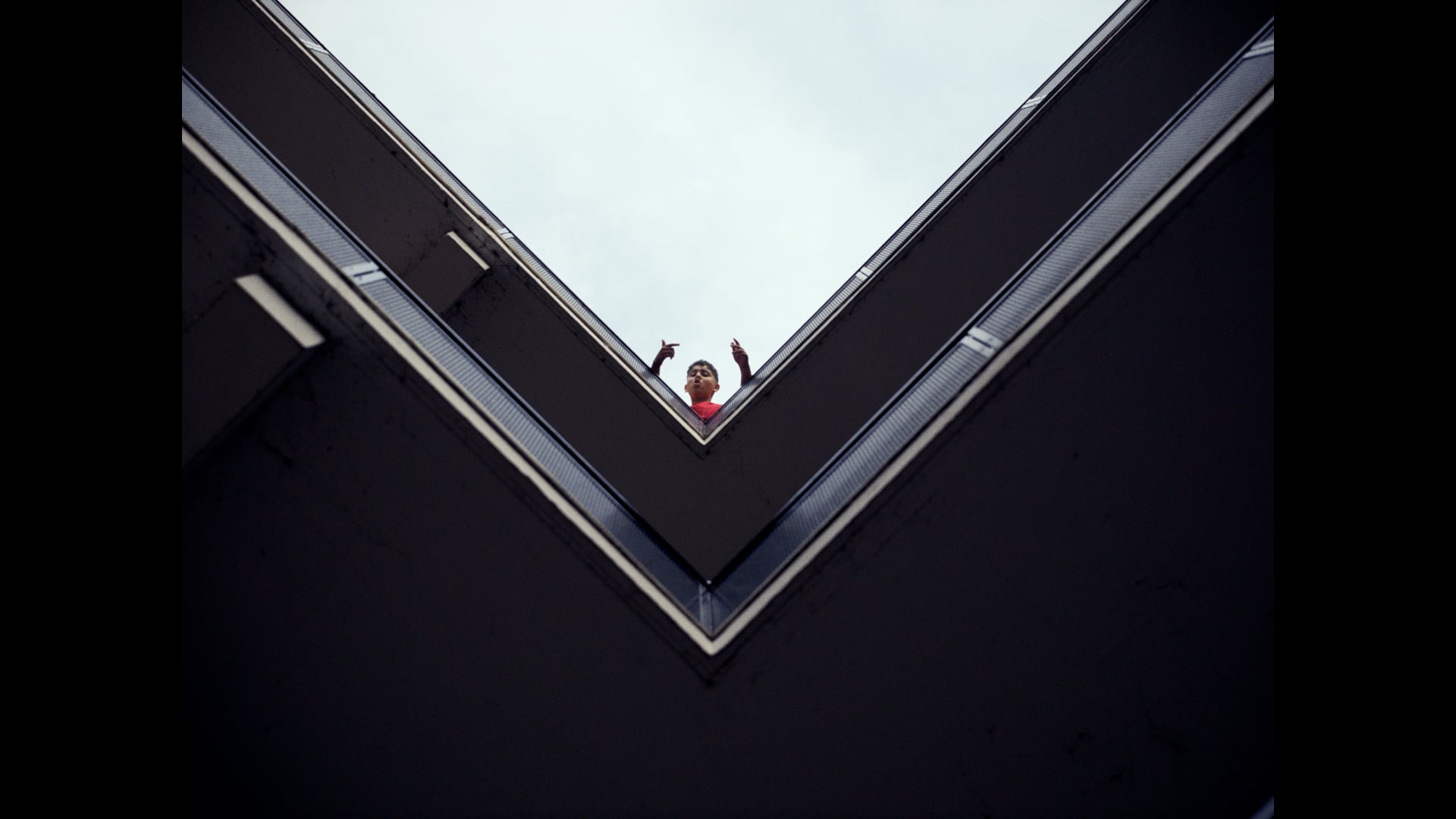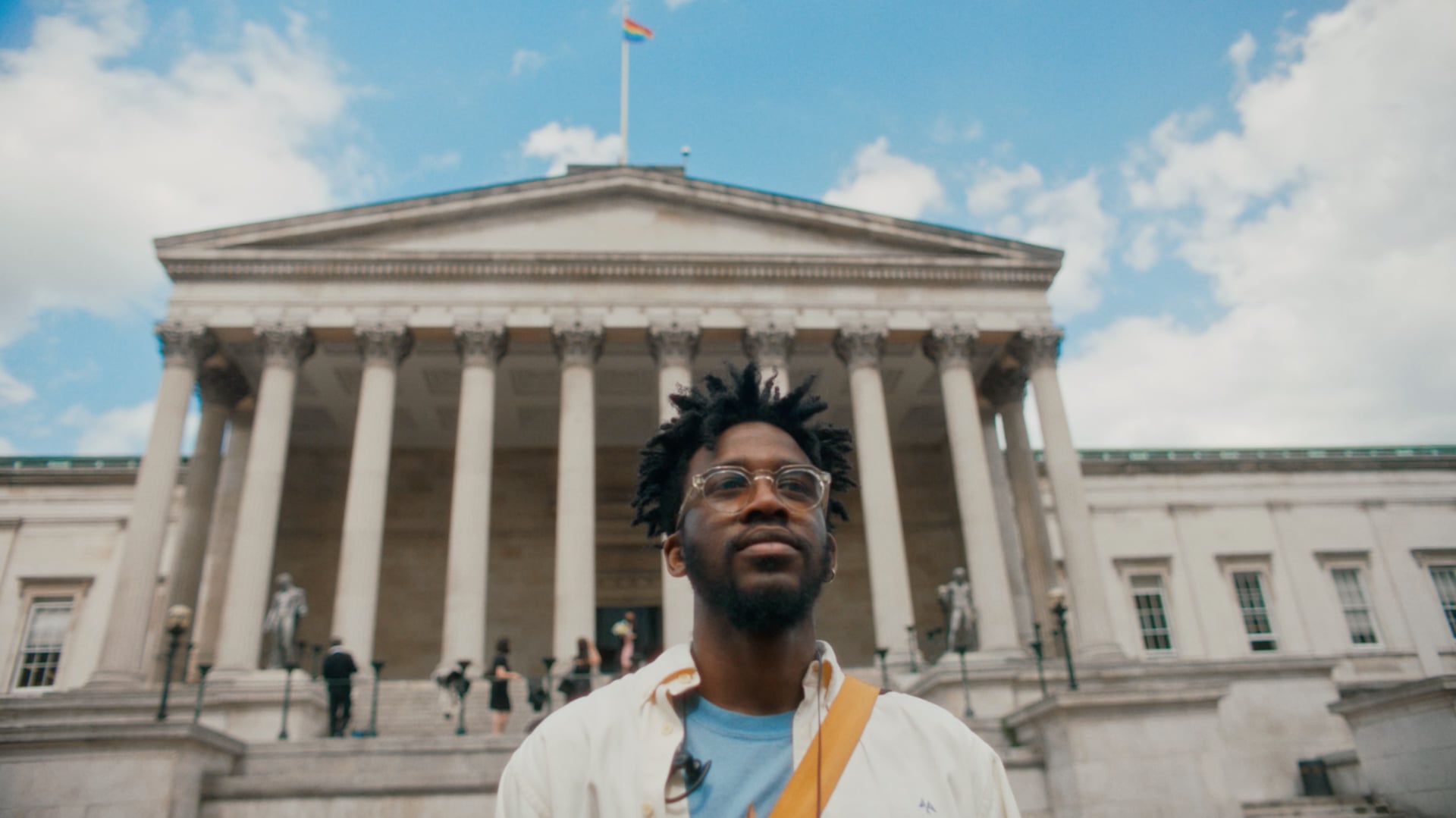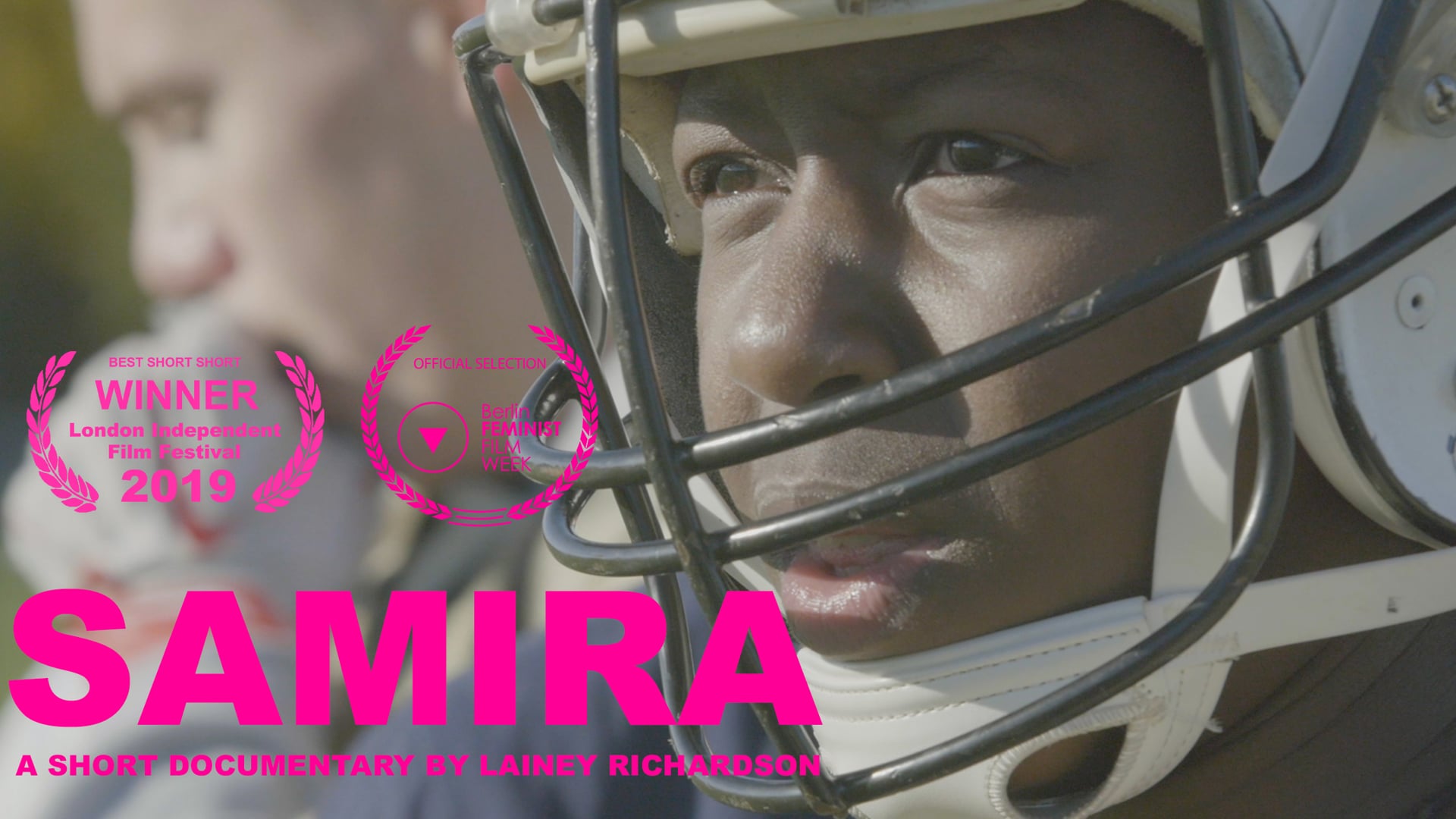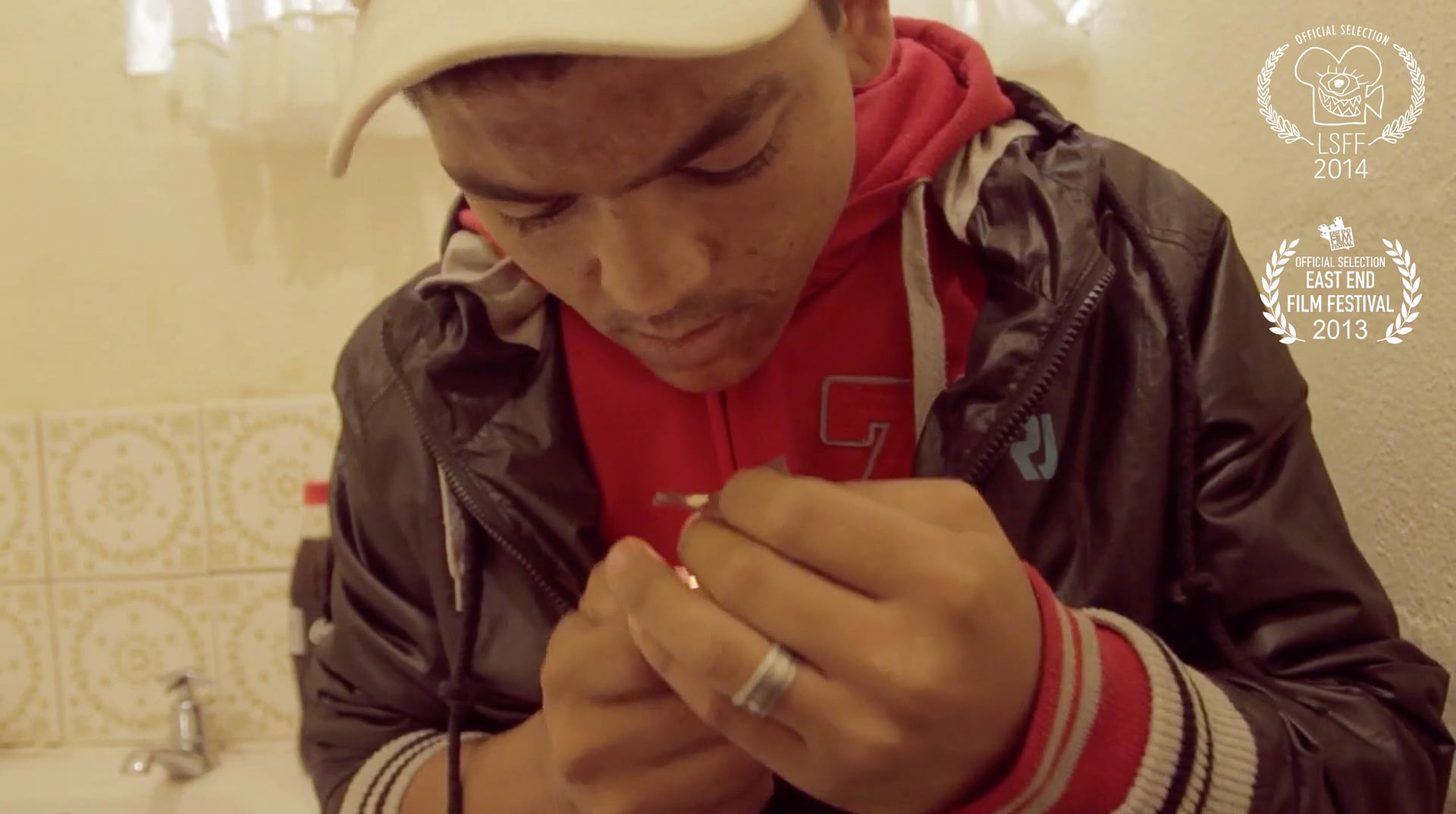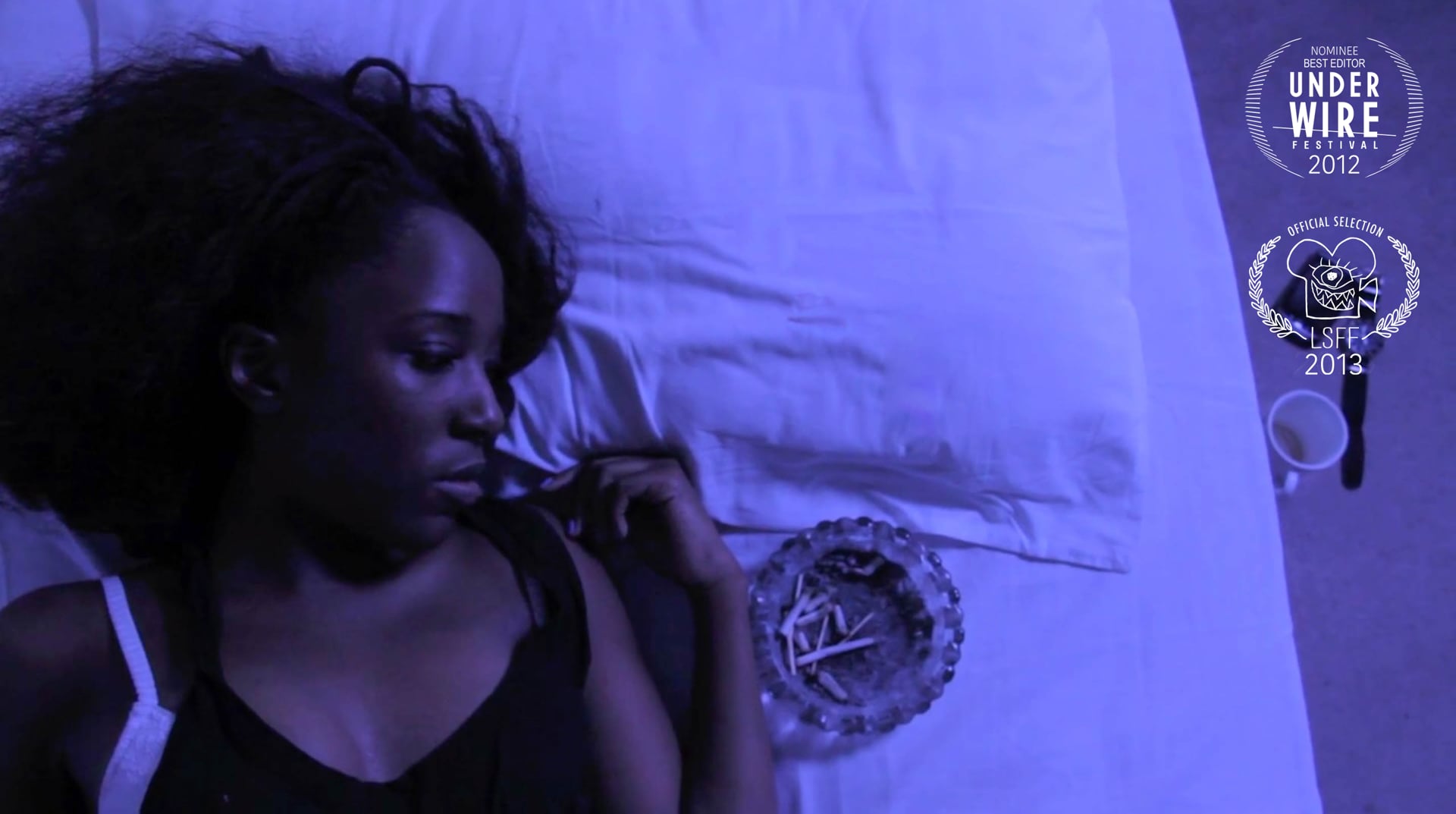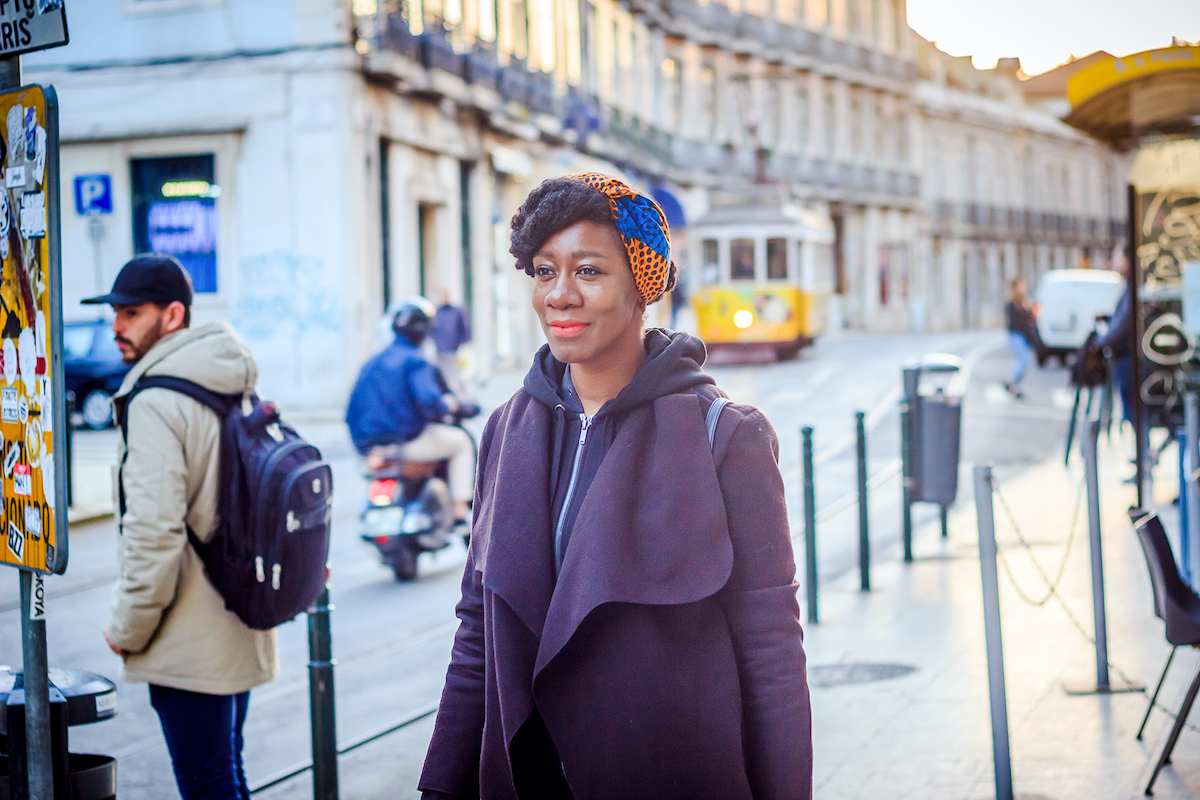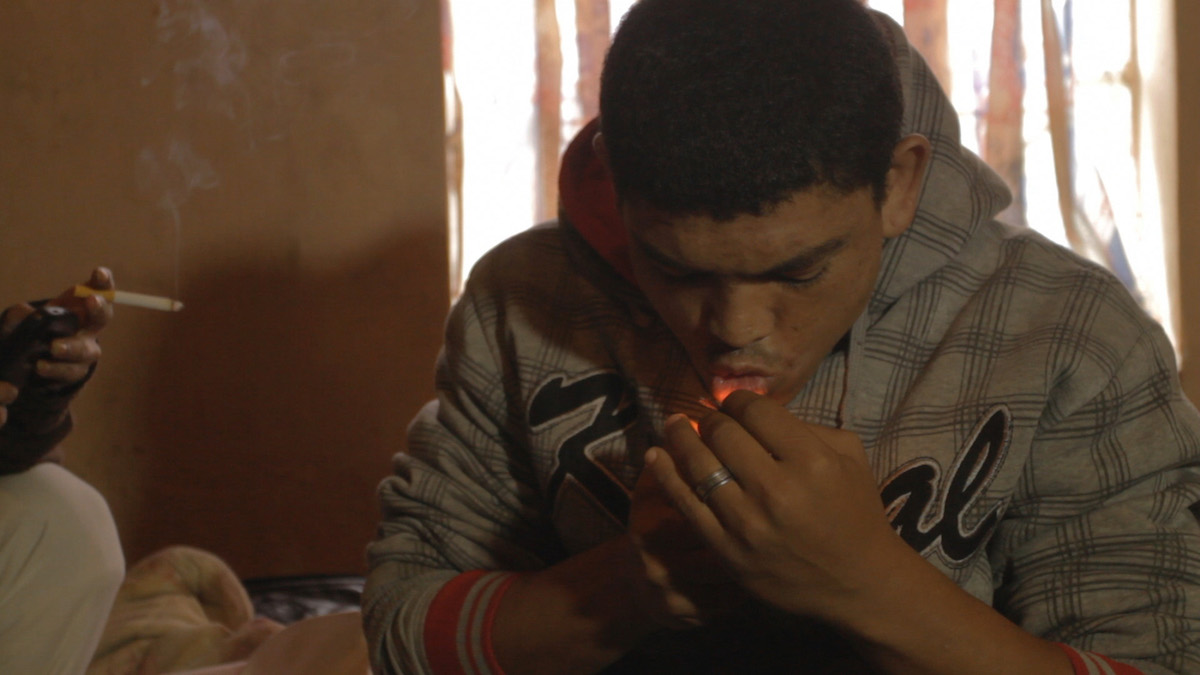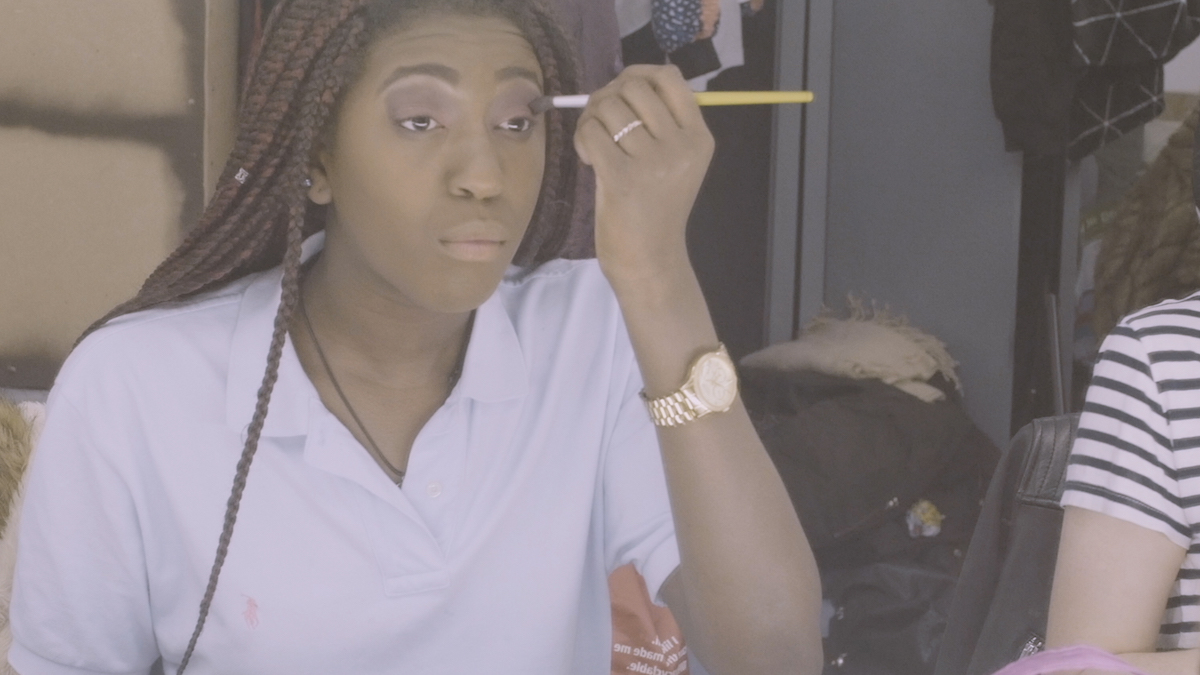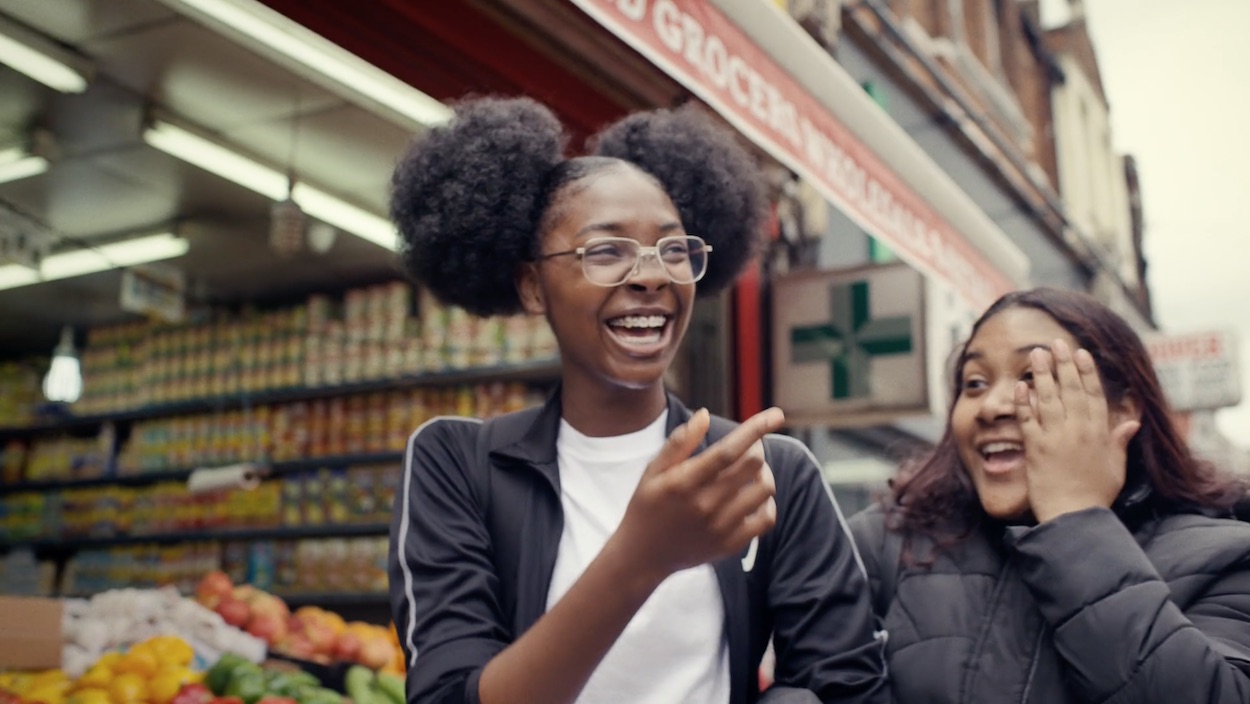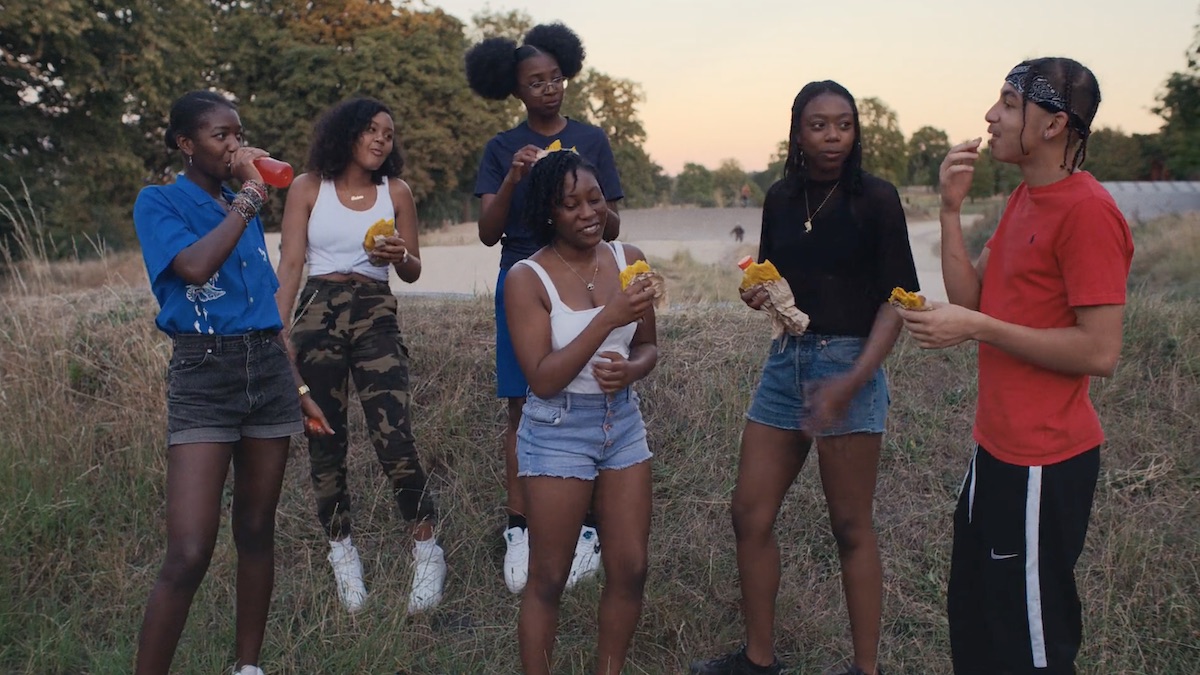Lainey Richardson
Tell us a bit about your journey into filmmaking. Were you always interested in film and which films made an impression on you at an early age?
Films have always been a big part of my life, but it wasn’t until I discovered art house films at 14 that I had that eureka moment and knew it was what I wanted to do. I remember seeing Ma Vie en Rose in the 90s, the Belgian entry to the Academy Awards about a transgender child whose family struggles to fit in, in the suburbs. I was struck by the notion that filmmakers have the capacity to show us worlds we’ve never seen and shape our emotions. I was like: “I want to do that!”
I got my first placement as a runner at 15. Bought my first camera at 18, indiscriminately documenting my family, and started experimenting with conceptual documentary video at art school a few years later. But I don’t think I made what I’d call a fully-working conventional short film until I was 26. And from there, I’ve made an independent short once every two years since. It’s been a baptism of fire and a steep learning curve, but making films is the best way to learn how to make films! And that body of work is the reason I’m a signed director now.
How has your Ghanaian and Jamaican heritage and your upbringing in London’s Camden Town – famously a melting pot of cultures and creativity – influenced your work?
Wow, great question. Well, I think having both Ghanaian and Jamaican heritage as well as being a first-generation Brit on my dad’s side means that my identity has always straddled three cultures simultaneously, and I think this really colours how I see the world, always seeing things from different points of view at the same time, and always questioning things. I think it makes me have a lot of empathy for the people I direct and perhaps bring a fresh perspective to the table through my work.
I also think being exposed to a mish-mash of cultures, classes, religions, and perspectives in Camden lead me to understand the richness that can be found in other cultures from a very young age. I really want that richness to be infused into my work, and for my art to imitate life.
Alongside your directing career, you’re also a successful editor: do you still edit your own work? How does your editing experience feed into your craft as a director, and vice versa?
When it comes to my independent film projects, I generally don’t edit my own work. In the commercial, content, and music video space I’m a bit more open to cutting work I’ve directed, but only because I know this can give me an edge as a candidate at times. But if it’s not a deal-breaker, I’d prefer not to!
I just really love the possibilities that are born out of collaboration, and being able to have a bit of distance and objectivity from the footage which having a separate editor brings, otherwise it can get quite ‘heady’! For me, my editing career was always there to bolster my directing career and put food on the table until I could make a fulltime living out of directing. I feel like I’m at that transition stage now, so I haven’t cut in a while, but feel so grateful to have it in my back pocket should I need it again.
I do feel as though my experience as an editor is one of my greatest assets as a director though. When coming up with ideas, writing a script or working on a project in the commercial space, you can really see upfront what building blocks are needed to tell that story. And then you just need to work out how to reverse engineer it.
Tik & The Turkey
Was exploring subcultures and amplifying minority voices something you wanted to focus on from the start of your career? It seems to be a red thread even from early work like Tik & The Turkey, your long-form documentary about the devastating effects of drug use in South African townships. How did you come to make the documentary? Is long-form something you might return to in the future?
Yes, it’s what I’m drawn to and what inspires me. But it serves a dual purpose: It’s partly to spotlight the unseen or unheard, to empower people in some way; But it’s also motivated by feeling underserved. Things have definitely started to change for the better, but until recently, as a Black British woman, I felt quite invisible in film and TV, and if there was visibility, it was rarely centre stage, or I’d have issues with the gaze, tokenism or tired stereotypes. So I’ve always been operating from: what do I need to see more of on screen? What parts of me feel uncatered for? And then I think, let me go and make that.
I made Tik & The Turkey with Cath Collins, a good friend who came on board as producer. She’d been commissioned to research the drug problem with the hope that the findings could be used to change policy or increase funding into the communities. But there was a fear this might not happen, and we both felt that this community needed to be heard and humanised, so in spite of neither of us having any documentary experience, we just decided to make it. We raised a few hundred quid which covered our cinematographer and petrol, and I flew out the following month.
I’d love to make more long-form. I’m craving something fiction-based which I’d happily chase with a documentary. I’d just need proper financial backing next time. Zero budgets are not for the faint-hearted!
Samira
Black culture and identity is another strong theme in your reel: the young Black women in your self-funded short Samira and your second Football Beyond Borders film, Being Black and 6teen are seen through a truthful, yet ultimately uplifting lens. How important was it to emphasise the vibrancy, spirit and promise of these girls in the face of institutional and cultural challenges? Did you notice any synergies between the films?
Great that you picked up on this. Yes, it was incredibly important to me to highlight, and I did see the correlation. It kind of goes with what I was saying earlier about creating what I want to see, in this instance more positive images of Black women and women of colour.
And with young Abi, it was crucial to have her racial adversity front and centre, but at the same time I wanted to make sure that Abi wasn’t defined by her struggle. There is so much love and light in her life too, and she is indeed remarkably talented and full of potential, so I wanted that to be centre stage too, for Abi to see herself how I see her. And I guess it’s another way to dispel racial stereotypes, through showing people reality, which is not one-dimensional.
Abi in Being Black and 6teen
How much responsibility do you feel, as a Black filmmaker, to keep Black narratives in the spotlight – particularly to build on the groundwork laid during last year’s BLM protests?
This is a tricky one. I’m not sure I feel responsible as a Black filmmaker to keep Black narratives in the spotlight. I do it because representation is something I care deeply and passionately about, and because I love to tell stories steeped in my cultures inspired by the people around me, many of whom are Black. But if I wanted to make films about elderly people, womxn-focused stories, or anthropomorphic cars, I think that should be ok to do too, free from burden… Yes, I am a ‘Black filmmaker’ which I am very proud to be called, but I am also just a filmmaker who happens to be Black, who wants the same opportunities to tell lots of different kinds of stories that other people are afforded.
I really don’t think there’s a shortage of Black filmmakers who want to tell Black stories, so I think it’s more the responsibility of gatekeepers to ensure these narratives get through, and that if the standard isn’t high enough, that Black talent is nurtured and developed from the grassroots. I think a lot of the recently launched initiatives and schemes are starting to try and address this, which is ace!”
I think for me, I see it more as a collective responsibility. I think the industry has a collective responsibility to ensure we’re being inclusive in front of and behind the camera, and that a wide spectrum of underrepresented narratives get to be in the spotlight. I 1000% want to see Black narratives remain in the fore, but I also want to see inclusivity extend to people of different ages, classes, gender and sexual identities, and people with disabilities etc. I think we’ve got to go beyond just fighting our own corner.
I think the death of George Floyd and the BLM created a seismic shift which has led to some fundamental changes, but we need to stay consistent and systematic. And for me, this journey didn’t start last summer, this is my life. I was attempting to amplify Black stories and othered voices before, and this is what I’ll continue to do. I’m just happy now that I have more allies and support, and that I’m with a production company that makes me feel seen and valued. Thanks Caviar!
Being Black and 6teen
Repeated lockdowns have generated headlines about the effect on children’s education and fears of ‘a lost generation’, but very little perspective from the affected children themselves, which is why your first film for Football Beyond Borders, Yassin: It Really Goes This Deep, feels so important. The music video-slash-poetry film format is interesting, too –how did you get involved with the project and did you instantly know how you wanted to approach the brief?
The agency Dark Horses approached Caviar about the project. I wasn’t signed to Caviar at that point, but we’d been in talks and were really keen to work together, and this just seemed like the perfect fit.
I knew I wanted to draw inspiration from Yassin’s life and include his family, and that I wanted to capture that sense of claustrophobia that life in lockdown brings, giving it a real Groundhog Day feel, but beyond that the concept really did grow organically out of conversations with Yassin. He came to the table loaded with ideas, so it was more about creating a marriage between our ideas and sensibilities. Yassin is a cool 13 year-old and a visionary in the making, so I really had to sell my ideas to him, and if he didn’t like something, I went back to the drawing board. He’s really into Grime music, so once the penny dropped that I could utilise that aesthetic, things started to fall into place. It was just the restrictions that Covid-19 brought which also had to be factored into every creative decision.
After the extraordinary year that was 2020, what lessons and learnings are you hoping to take forward into 2021? Do you have anything exciting in the pipeline?
I think it really hit home for me while working on the Football Beyond Borders project with Abi and Yass that it’s all about community. The impact we can have on each other’s lives is immense. And that extends to life in lockdown, just making sure those around you are supported, and focusing on what’s actually important. Off the back of that experience I’d love to get into mentoring.
Really excited to see what I’ll work on next with Caviar and Imposter. And right now I’m writing my first TV pilot, so watch this space.
Interview by Selena Schleh

